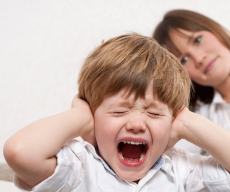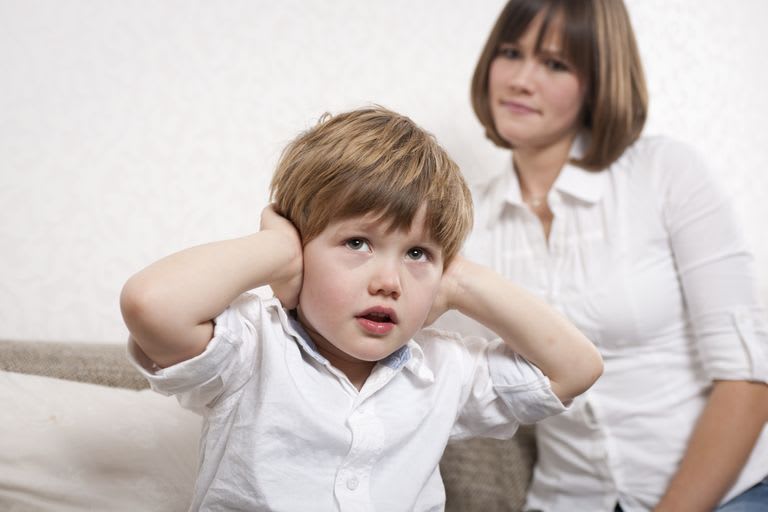Many children act defiant. They will say:
“You can’t tell me what to do!”
“You are not the boss of me!”
“Why should I listen to you? You never do anything for me!”
Parents are often at a loss on how to deal with defiance and the power struggles that ensue. Some parents get mad and respond accordingly. Many parents will lecture their child on the evils of disrespectful behavior. Other parents ignore it and hopes it goes away. All parents find it to be a frustrating and annoying part of the parenting experience.
The best way to deal with defiance is to avoid slipping into the power struggle in the first place. To do that, parents need to know a few psychological truths:
1) Kids want to be good.
Dr. Ross W. Greene in his book, The Explosive Child, says, “Children do well if they can.” That means  that when a child is “misbehaving,” there is something that is causing him to act in this way. In the case of defiant kids, if they were able to handle the limits and demands being placed on them without acting out, they would. They want to behave appropriately, but they are not sure how. Which leads me to the next point…
that when a child is “misbehaving,” there is something that is causing him to act in this way. In the case of defiant kids, if they were able to handle the limits and demands being placed on them without acting out, they would. They want to behave appropriately, but they are not sure how. Which leads me to the next point…
2) They need us to love them no matter what.
Kids are desperate for their parent’s unconditional love and approval. They are always looking to impress us. I know that I always forget this when my kids are disrespectful. My first instinct is to think, “How dare they talk to me in that way!”
We don’t need to feel this way. We don’t have to get angry and feel as if our backs are against the wall when our kids are defiant. We should try to imagine that if they are mad enough or frustrated enough to risk losing our approval, something must really be bothering them. Once we can put ourselves in their shoes and dan l’kaf zechut (give the benefit of the doubt), we can rid ourselves of that gut feeling of anger.
3) Teach them to read your lips.
Kids who are defiant are usually somewhat delayed in the area of emotional intelligence. To elaborate, they may have trouble reading non-verbal language cues. More particularly, they may have difficulty identifying facial expressions. They don’t notice the warning signs of an adult’s anger. When people are angry they generally pull their eyebrows down, their eyes glare and their lips narrow. Some kids can be totally oblivious to these signs and it is to their detriment. They will continue to push their agenda without recognizing how it is affecting their parents or the other adults that they may anger. They soon are mired in a full scale struggle without even noticing how they got there to begin with. So what can you do?
When I am angry and annoyed and my kids continue to whine and argue, I try to teach them to read my face: “Take a look at my face for a second. It is mad….”
Having them look at my face and telling them that my expression means I am angry helps them to start reading facial expressions. It gives them a visual and verbal cue.
I continue with some “I” statements: “I am frustrated, annoyed and upset. I can’t listen to this anymore.”
I let them know that perhaps we can reconvene later: “When I calm down, I will try to discuss the lip gloss that you lost and need to find right now. Right now, I need a break.”
4) Don’t allow disrespect.
This might sound like I am contradicting myself, but we should not accept disrespectful behavior from our children. Kibud Av Ve’em, honoring one’s mother and father, is a mitzvah not for our kavod (honor), but to benefit children. They need to learn to speak respectfully to us for their own good. They actually feel safer and more secure when we parents maintain our authority in our home. So how do we do this?
Don’t teach when you are angry. Parenting should not be done in the moment. When the smoke clears and both of you and your child have calmed down — that is when you teach your child about respect.
Handling defiant kids can be tough. Knowing that, deep down, kids want to be good, and that they want our approval can help. Teaching them to read our facial expressions and to respect their parents are important skills to help us reach out to our defiant children.
Adina Soclof, MS. CCC-SLP, works as a Parent Educator for Bellefaire Jewish Children’s Bureau facilitating How to Talk so Kids will Listen and Listen so Kids will Talk workshops as well as workshops based on Siblings Without Rivalry. Adina also runs parentingsimply.com.
The words of this author reflect his/her own opinions and do not necessarily represent the official position of the Orthodox Union.
